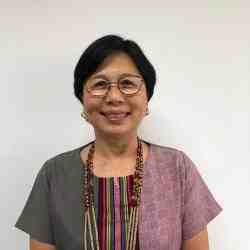GLOBAL ISSUES
While there is evidence to suggest that worldwide unemployment rates have been steadily declining, this trend has not coincided with a similar decline in low-quality and dangerous working conditions. In 2018, 3.3 million people did not enjoy economic security, material well-being or equality in opportunity and 700 million people continue to live in poverty even though they are employed[12].
Labor and migration go hand-in-hand. Lack of employment and labor conditions are a big reason that workers make the journey across international borders to seek economic opportunity. In 2018, there were 164 million migrant workers, most of whom should be the most vibrant and productive members of their home country’s workforce[13].
NEW IDEAS
This year, Ashoka Fellows are working to solve many of the fundamental issues at the heart of labor migration. They are tackling the complicated networks of cross-border employment by going to employment agencies, companies and domestic employers to shift mindsets toward equitable pay and fair conditions. They are also working to revive and create industries in their home countries, to provide opportunities that provide an antidote to migration. Their work shows new avenues to overcome unequal and unfair labor practices worldwide.
Globalized movements for migrant workers
There are an estimated 11.5 million migrant domestic workers around the world; 380,000 workers, mainly from the Philippines and Indonesia, work in Hong Kong. By law, migrant workers are required to use employment agencies in order to seek employment in Hong Kong, a system that is rife with abuse. A 2016 report by the Justice Centre found that 1 in 6 domestic workers in Hong Kong was forced into labor and 31% do not feel they are able to change their employer due to a high debt burden that begins before they’ve even arrived[14].
In Singapore, foreigners, including both expatriates and domestic workers, make up 40% of the labor force, from Bangladesh, China, Thailand and Indonesia are mainly employed in construction, manufacturing and shipping and are in the country with 8-10-year legal work passes. Despite having legal status, they tend to live on the margins of Singaporean society, in substandard housing and without access to education or other tools to improve their skills or knowledge.
Democratizing labor rights
The rise of new forms of labor and disruptive industries has led to a decline in traditional labor protection systems worldwide. This problem has been especially acute in the United States where organized labor has been drastically weakened as gig economies take hold.
In Bangladesh, Nazma Akhter is democratizing the fight for labor rights with the Awaj Foundation, which catalyzes women-led organizations to address issues in the ready-made garments industry.
Maintaining tradition for economic vitality
Dinny Jusuf is working on the other end of international labor migration, revitalizing a traditional industry to en- able potential migrants to have economic opportunity at home in Indonesia. Driven by poverty and limited economic opportunities, 9 million Indonesians work overseas; 67% of them are women[15].
Similarly, Dan Driscoll knows that tradition can bring modern solutions to economic inequality. The artisan sector in Morocco has seen a steady decline in participation, with an average 17% dropping out each year – from 1.1 million artisans in 2007 to just 300,000 artisans in 2016.
HOW TO:
Make retail work aspirational
India is a country of shopkeepers: retail is the second biggest industry in the country after agriculture. As an industry of $1.3 billion, it is one of the largest in the world. Despite this, working in the retail sector is often cast as a low-wage, undesirable position. It has been stigmatized as a job for desperate, uneducated and unskilled members of society. In this environment, retail owners have not had many incentives to upskill or create pathways for advancement for their workers.
THE OPPORTUNITY
Why work with one social entrepreneur when you can bring together many? Ashoka’s Venture program finds and identifies social entrepreneurs around the world to help them achieve their vision for systemic change, Ashoka’s Fellowship program connects Fellows within countries, regions and across the globe – for peer support, for ideas exchange, and for collaborative enterprise. In 2019, fellowship events around the globe included the European Changemaker Summit in Barcelona where 50 fellows from across Europe connected, celebrated, learned and collaborated with 1500 participants. Partnerships with Google, BMW Foundation, Boehringer Ingelheim, Glovo, Sage Foundation, Danone and Caixa Bank enabled the multi-perspective, multi-day event. In Nairobi, Fellows from across the continent met for two days of collaboration and leadership in partnership with the British Council and supported by Boehringer Ingelheim, Mars Wrigley, CTA, UNDP, and Thomson Reuters. Across the United States, Fellows embarked on a Welcome Change tour with themed events in five cities, where they met and helped to give context to issues like legal innovation, building changemaker movements, racial healing, rural innovation and climate change. Connecting Fellows to each other to expand their opportunities is core to Ashoka’s vision.
[12] International Labour Office. World employment and social outlook: trends 2019. Geneva: International Labour Organization, 2019.
[13] ILO Global Estimates on International Migrant Workers – Results and Methodology (December 2018) - World. International Labour Organization, Dec. 2018.
[14] “Coming Clean Report.” Justice Centre Hong Kong, Mar. 2016.
[15] Missbach, A. (2018). Indonesia: A country grappling with migrant protection at home and abroad. Migration Information Source. September 19, 2018.





